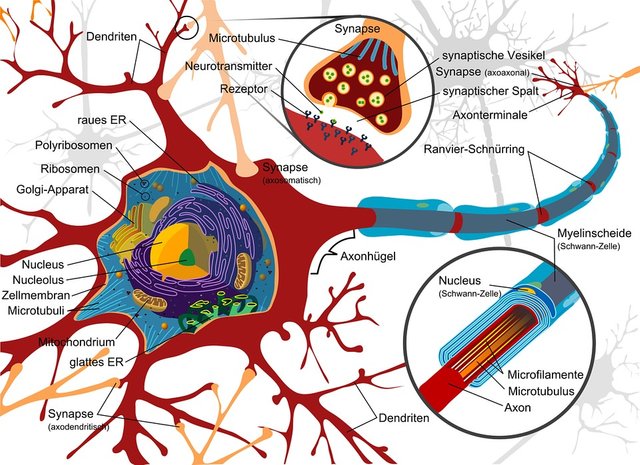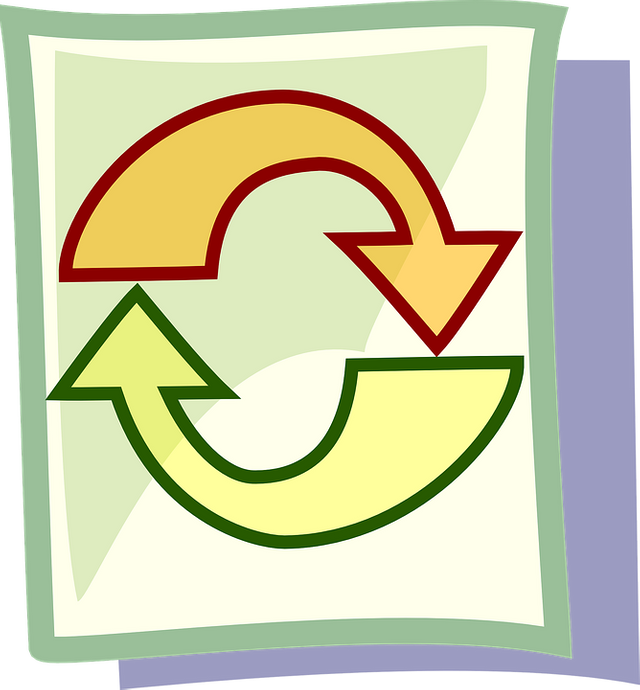Life and works - Complex systems
What are complex systems? What can literature tell us about complexity?

One of the most recurrent questions to face either from science's or philosophy's perspective, is: what is life? As part of that storm of reasonable perspectives, perhaps we may find an unexpected relation between biology and literature, and understand them as a tour through complexity, with several transfers, flights, ships shortcuts... and doubts.
Lets begin with "us", curious apes that think about themselves. It is clear that we are a series of systems, understood as a group of parts and relations: cranked wheels, bolts, cells, organs, chemical chatter. Classifying just like that, we are able to understand most of the things that surround us and form us.
For instance, the nervous system.
Yes, it has parts: brain, spine, cerebellum; and also has small parts: neurones, their molecules and their packed dreams. And, of course, it has relations: Synapses (those cheerful chemical chats among neurons), circuits and orders and responses from the general we hold in our skull. The thing is "what" happens when an army of neurons gather up and work as one, as a network... They stop becoming random transistors to form "somethingelse", something alive that simply does not deserve to be called "a pack of neurons".
Is the brain a horde of neurons? Yes, of course, but also a lot more, much more than just that. The whole thing and the parts.

We can have a lot of bricks stacked in our backyards and just that, a bunch of bricks. Until some day we wake up with a mood boosted with "reponsability" and decide to finally start building that extra room we decided to build 10 years ago and we promised to the family. The bricks is more than a "pack of bricks" then, now, its a wall. But it is also less: for instance, in the wall form we lose the possibility of looking at each part from the top, bottom or sides, they are hidden under this new shape. The maximum we can say about this is that a "whole" is different to the sum of the parts (now, lets admit, you do not need an astrophysics degree to deduct this). This "whole" has properties that only display when they are in this shape, it is what we call: emergence of a complex system. This way, an ecosystem, a community is the sum of the parts that conforms it, but, alongside it has new features that cannot be analyzed by analyzing a disbanded part.
We can apply this same perspective to the biggest challenges for Biology, particularly, neuroscience's: Understanding what in hell the conscious is? That chance we have to know we are alive, that we have a body and that if we poke ourselves with a needle it does hurt. Conscious, possibly, is the final frontier in our private star trek, even better: some say that it is a trek with no end, since we lack of the tools to understand such complexity. Top that off with the fact that they give a "technical" name to everything: Hard problem of consciousness (I already told you, scientists suck at creating catchy names), as if nature's laws werent enough to perhaps attempting to understand it, because we are trying to understand the brain... With another brain.

But us, generally amazed with the space, the size and the scales, we may also consider the time as a possible source of complexity. Not the physicist's (that homo-sapiens subgenus that brags about understanding everything in the universe) kind of time, the one we wear on us without noticing, that part of the brain able to tell you that "now" is now: the biologic clock. Here, there's also several levels of categorization and complexity that cover several levels: microseconds, responsible, for example of perceiving if a sound comes from either our left or our right; milliseconds, that gives us fine motor skills and the skills needed to understand jokes or songs in time; and also years, that leave a print in us as they pass by. In between, we've the two more known "times": seconds and minutes (How much time did you spend readign this text already? Are you capable or a rather accurate "guess"? If you do, you probably have a brain), we know them up close, their brain circuits, drugs alter it, emotions transform them into eternal moments and vice-versa. And, on the other hand, days, relentless cycles of light and shadow that condition our existence to be day or night creatures.
Are then biologic days accumulations of hours and minutes, the sum of certain moments? Yes, and no. As you may expect by now, there's much more behind it than the mere sum of the factors.

In other words: the rhythms and clocks that mark our "time" are complex, they represent several groups of complexity; and they, at the same time, represent a LARGER group. A very complex system. We are a body fll of time, made of times.
Now we arrive to the part relevant to the title: literature. What makes a group of characters form into a word, those words plot to form sentences, and the sentences paraghraphs; all with a meaning? Aside of that, what emergences we get off a story or a poem? clearly, they are also not a "sum of their parts"
Where's the emergence in:
I like you when you are quiet because it is as though you are absent,(The poem above is a rough translation of a fragment of one of Pablo Neruda's works: "Me gustas cuando callas")
and you hear me from far away, and my voice does not touch you.
It looks as though your eyes had flown away
and it looks as if a kiss had sealed your mouth.
Like all things are full of my soul
You emerge from the things, full of my soul.
Dream butterfly, you look like my soul,
and you look like a melancholy word.
I like you when you are quiet and it is as though you are distant.
It is as though you are complaining, butterfly in lullaby.
And you hear me from far away, and my voice does not reach you:
let me fall quiet with your own silence.
Right there, where the eyes converge, lives, spaces. The emergences are where we can interpret them.

If you liked this post and its informal way of talking about sciences, please, follow me for more!
Leave a comment either for good or for bad reviews. I take everything as constructive, and I really appreciate the feedback, even from trolls (at least a troll read it before being himself!).
Copyrights:
All the previously used images are of my authory or under a CC0 license (Source: pixabay), unless openly stated.
All the Images created by me possess a WTFPL licencing and they are free to redistribute, share, copy, paste, modify, sell, crop, paste, clone in whatever way you want.
I continued reading the Paul (Pablo) poem cause that remember me a women I loved with all my heart. Thanks for the poem,pal. I´m back on Steemit. I expect things will be better now that I read in one of your lasts posts (that of sell your account). I was off cause my mother was ill and I had to be in charge in her accountant office with my sister and working in my thesis. The end of my comment is the end of the Pablo Neruda Poem. We are complex but simple at the same time. I love poetry and how poetry make me feel sometimes. I am determinated in leave my Taringa account and don´t post again. Think that this is a better place than that site full of sissy young boys. Sorry for my broken english if I disturb someone who read me.
Think I have to look to the future and don´t look back again. She´s gone and I can´t do nothing. Nothing. Only I can do is pray for her soul. I wish be happy and have her with me like the poem say. But the ugly truth is that. If heaven exist may be some day I will se her again.
Me gustas cuando callas porque estás como ausente.
Distante y dolorosa como si hubieras muerto.
Una palabra entonces, una sonrisa bastan.
Y estoy alegre, alegre de que no sea cierto.
Really well presented analogy; and very micro-macro too with the analogies within the analogy :D and the micros within micros! oh my! Just as literature does with philosophy. I really enjoyed the complexity in contemplating all that.
Thank you for the feedback! I really appreciate it :D
We are like smartphones... with our nervous system being antenna, processors and data banks.
It may also be why we love them so much, as they are an extension of ourselves.
I brought this up as we seek complexity to duplicate our simplicity... we are vibrations in a greater vibratory reality.
Nice one @renzoarg
I believe you will Like this article as well:
https://steemit.com/science/@renzoarg/19-i-better-google-it-our-daily-tech-era-drama